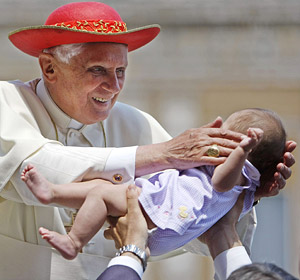A story in this morning’s NYTimes, “For Iraqi Christians, Money Bought Survival,” reveals a little-known (to most of us in the U.S., I suspect) story of how Iraqi Christians have been paying off militias in exchange for their lives. The story starts with Chaldean Catholic Archbishop Paulos Faraj Rahho, who died earlier this year after he was kidnapped because he apparently thought it was safe enough to stop paying the extortion money. This story, as the entire tragic story of our enormous collateral damage to the church in Iraq, is shameful for the United States. Yet this Times piece raises questions of moral or ethical culpability on the part of Iraqi Christians:
Officials say the demands could be hundreds of dollars a month per male member of a household. In many cases, Christian families drained their life savings and went into debt to make the payments. Insurgents also raised money by kidnapping priests. The ransoms, often paid by the congregations, typically ran as high as $150,000, several priests and lay Christians said. In a paradox, this city, long the seat of Iraqi Christianity, also became known as the last urban stronghold of Sunni insurgents. Another, more painful, paradox is that many of Iraq’s remaining 700,000 Christians paid to save their lives, knowing full well that the money would be used for bombs and other weapons to kill others. Archbishop Rahho was a man of God who preached peace in his sermons. How he was contorted into fulfilling the role of providing payments to the insurgents is a complex question.
Is it complex? My reflex is to absolve him and other Christian leaders of the burden of guilt, without too much complex thinking on my part.

